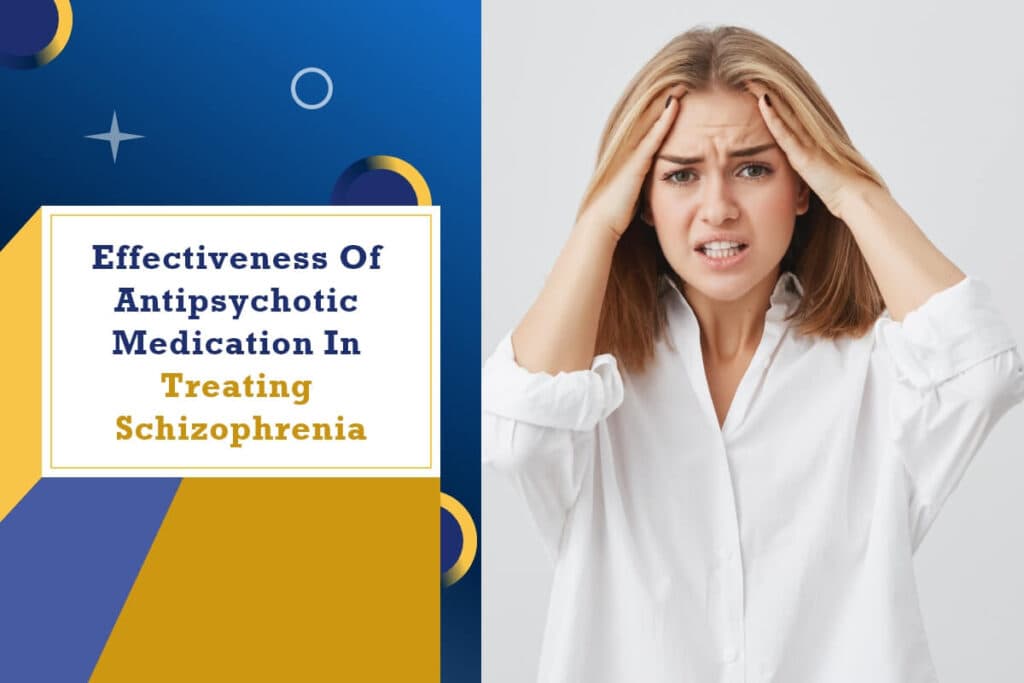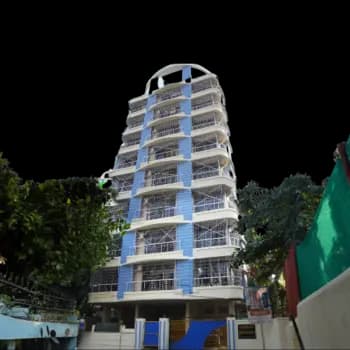Effectiveness of Antipsychotic Medication in Treating Schizophrenia

A typical antipsychotics, a class of more recent drugs, too are good at treating schizophrenia symptoms. These drugs, such as risperidone, quetiapine, and aripiprazole, were typically prescribed since they carry a lower risk of some severe adverse effects than conventional antipsychotics.

Atypical antipsychotics do have some danger, though. They might change someone's metabolism, raising the possibility of getting diabetes and high cholesterol. To prevent major side effects, people using atypical antipsychotics should have their weight maintained and their blood concentrations of glucose or lipids routinely evaluated by a doctor throughout the treatment regimen.
When taking antipsychotic medication, some schizophrenia symptoms, including agitation, frequently disappear within a few days.
Treatment for schizophrenia would focus on controlling your symptoms. You might need to take your medication for the rest of your lives or for a very long period. The approach to assist you in comprehending and managing your symptoms would probably also include a significant amount of psychotherapy, a type of talk therapy.
Your dear ones' practical and emotional assistance, combined with appropriate treatments, would go a long way towards assisting you in navigating your life.
Psychotherapy Types
Individual Psychotherapy
A therapist or psychiatrist might instruct the patient on how to handle the thinking and behaviour throughout sessions. They will gain more knowledge about their condition and its repercussions, as well as how to distinguish between actual and unreal information. It may also aid them in managing their daily lives.
Cognitive Enhancement Therapy
Cognitive remediation is another name for this kind of treatment. It teaches individuals to identify better social cues and triggers that enhance their focus, memory, and capacity for thought organisation. Group meetings and computer-based brain training are integrated.
Types of Psychosocial Therapy
A person with schizophrenia is more likely to require additional assistance learning how to integrate into a community if they improve significantly throughout psychotherapy sessions. Psychosocial therapy can help with it.
Rehabilitation
Schizophrenia typically manifests itself when we start to advance in our careers. As a result, rehabilitation may involve financial management training, problem-solving support, and career counselling.
Social Skills Training
This kind of education aims to foster better communication and social skills.
Family Education
Your understanding of schizophrenia and psychosis may assist a friend or afflicted family member. According to research, folks experiencing schizophrenia with a strong network of friends and family perform better than those without.
Coordinated Specialty Care
This is for those who are going through their first psychotic episode. It is a collaborative strategy that incorporates both medical and psychological treatments. It encompasses social and employment assistance that makes every effort to involve the family.
Social Recovery Therapy
This approach emphasises assisting the patient in establishing and achieving objectives and fostering optimism and good self- and other images.
Assertive Community Treatment
This provides highly individualised treatments to assist individuals with schizophrenia in overcoming daily obstacles like taking medicine. Additionally, ACT specialists help them in problem-solving and crisis prevention.
Antipsychotic Drugs For Schizophrenia
Doctors prescribe antipsychotic drugs for schizophrenia psychotic symptoms. Both long-term upkeep and rapid relief are possible with their use. Antipsychotic drugs are thought to function, at least in part, by interfering with dopamine signalling, which would be increased in specific regions of the brain in people with schizophrenia.
Hallucinations, including delusions, considered to be the "positive" symptoms of schizophrenia, are reduced by first- and second-generation antipsychotics. They do not appear to significantly impact "negative" cognitive symptoms, including the inability to communicate, express emotions, or even feel pleasure.
Antipsychotics First-Generation
Old drugs known as first-generation antipsychotics inhibit dopamine receptors in the brain to stop signalling. First-generation effective antipsychotic for schizophrenia comprise, for instance:
- Trifluoperazine
- Chlorpromazine
- Haloperidol
- Thiothixene
Antipsychotics Second-Generation
Second-generation antipsychotics have given people with a wider range of psychiatric illnesses, such as schizophrenia, more treatment alternatives. Second-generation antipsychotic examples include:
- Olanzapine
- Ziprasidone
- Lurasidone
- Paliperidone
- Lumateperone
The Glutamate Pathway as a Target
Antipsychotics can safely and successfully treat schizophrenia's positive symptoms. They are less successful at treating negative and cognitive symptoms like trouble focusing, thinking, and interacting with others. Due to these symptoms, a person may find it more difficult to keep a job, establish a relationship, and live a normal life.
According to a more recent view of Schizophrenia treatment in mumbai, negative and cognitive symptoms appear whenever the neurotransmitter glutamate is overexcited. This hypothesis proposes that glutamate abnormalities also generate positive signs, which activate dopamine receptors.
Researchers have been looking into ways to target this glutamate pathway to alleviate unpleasant symptoms. Some medications, like lumateperone, attempt to prevent or otherwise affect this route.
These Jagruti Rehab Centre therapies can reduce the general symptoms of schizophrenia while being secure and efficient. Furthermore, research has not yet demonstrated that these treatments are more successful at addressing the detrimental symptoms of schizophrenia.
Conclusion
Antipsychotic drugs of the first and second generations could both significantly lessen the psychotic symptoms of schizophrenia and enhance the general quality of life with Jagruti Rehab Centre.
Compared to first-generation medications, second-generation antipsychotics have a lower risk of neurological symptoms, including tremors. They may also have an impact on cholesterol, blood sugar, as well as blood pressure. Doctors should keep a close eye on these metabolic health indicators.
A patient and a doctor should consult together before deciding on the best course of treatment. There are long-acting injectable options for those who struggle with taking their oral prescriptions consistently with the best rehabilitation centre in mumbai.







